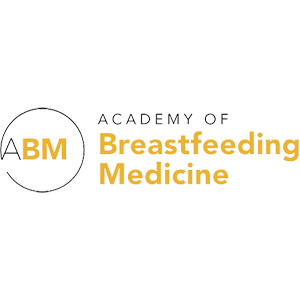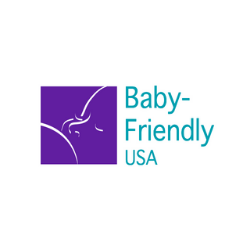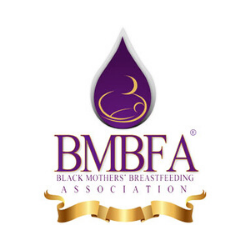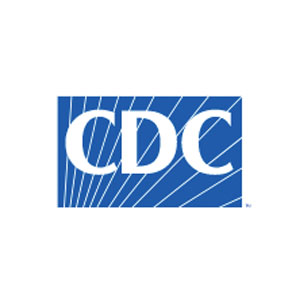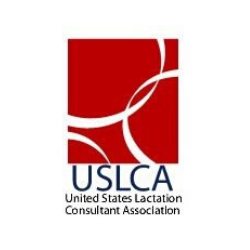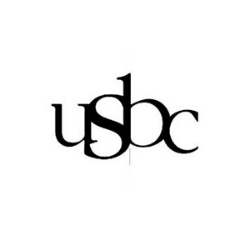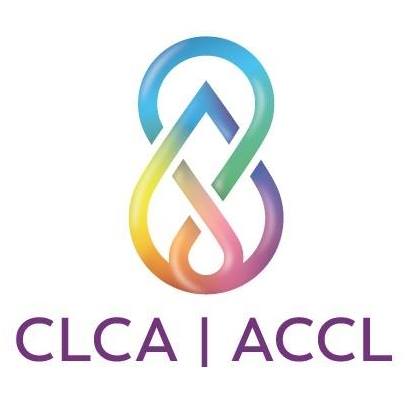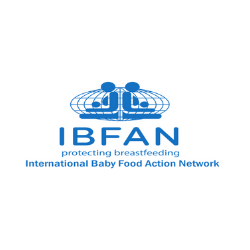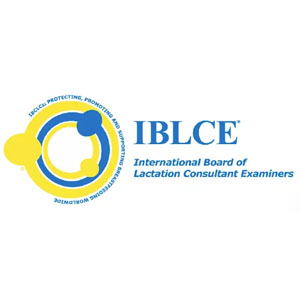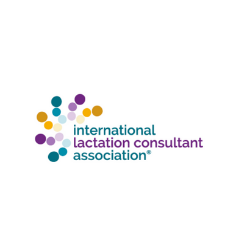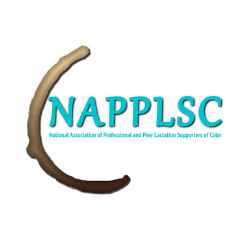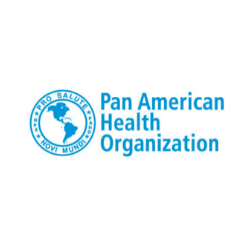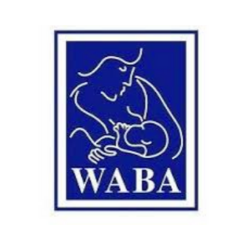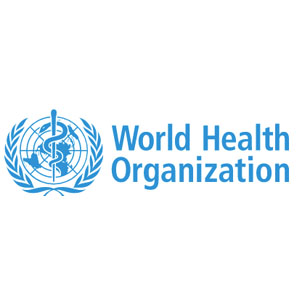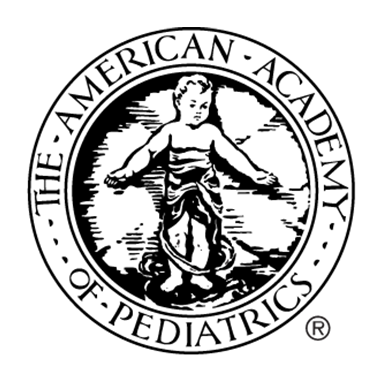Hazelbaker Lactation Institute provides access to education and comprehensive resources to lactation, health, and advocacy professionals. We proudly collaborate with state, national, and global organizations that share our vision to build strong families via lactation education, advocacy, and community building.
The American College of Obstetricians and Gynecologists (ACOG)
According to their website: “Founded in 1951, the American College of Obstetricians and Gynecologists is the specialty's premier professional membership organization dedicated to the improvement of women’s health. The ACOG "We Are You" video outlines the organization’s commitment to offering the very best in education, advocacy, and practice management. ACOG - We Are You video
Baby-Friendly USA (BFUSA)
According to their website: “Baby-Friendly USA, Inc. (BFUSA), is the accrediting body and national authority for the BFHI in the United States. In this capacity, BFUSA is responsible for coordinating and conducting all activities necessary to confer the prestigious Baby-Friendly® designation and to ensure the widespread adoption of the BFHI in the United States”. Locate a Baby-Friendly Hospital Location - USA
Black Mothers Breastfeeding Association (BMBFA)
According to their website: “BMBFA’s mission is to reduce racial inequities in breastfeeding support for black families. Our aim to build foundational networks of support, and strengthen systems to overcome historical, societal and social barriers to breastfeeding success”.
Centers for Disease Control and Prevention - Division of Nutrition, Physical Activity, and Obesity (DNPAO)
According to their website: “The CDC’s Division of Nutrition, Physical Activity, and Obesity (DNPAO) is committed to increasing breastfeeding rates throughout the United States and to promoting and supporting optimal breastfeeding practices toward the ultimate goal of improving the public’s health."
La Leche Legion International (LLLI)
According to their website: “LLLI’s mission is to help mothers worldwide to breastfeed through mother-to-mother support, encouragement, information, and education, and to promote a better understanding of breastfeeding as an important element in the healthy development of the baby and mother."
United States Lactation Consultant Association (USLCA)
According to their website: “USLCA is a national leader in advancing the lactation profession. We are advocates for the value lactation care providers contribute to the family healthcare team and in other community health settings. USLCA and its members strive to improve the health and well-being of children and families through breastfeeding”. TTEST
United States Breastfeeding Committee (USBC)
According to their website: “USBC is an independent nonprofit coalition of more than 50 nationally influential professional, educational, and governmental organizations that share a common mission to drive collaborative efforts for policy and practices that create a landscape of breastfeeding support across the United States”.
USDA – Food and Nutrition Service - Women Infants & Children Program (WIC)
According to the USDA - FNS website: ”The [Special Supplemental Nutrition Program for Women, Infants, and Children] – WIC Program serves to safeguard the health of low-income pregnant, postpartum, and breastfeeding women, infants, and children up to age 5 who are at nutritional risk by providing nutritious foods to supplement diets, information on healthy eating including breastfeeding promotion and support, and referrals to health care”.
Baby-Friendly Hospital Initiative (BFHI)
According to their website: "BFHI was launched by WHO and UNICEF in 1991, following the Innocenti Declaration of 1990. The initiative is a global effort to implement practices that protect, promote and support breastfeeding."
Breastfeeding Promotion Network of India (BPNI)
According to their website: “BPNI is a registered, independent, nonprofit, national organization; working towards protecting, promoting and supporting breastfeeding and appropriate complementary feeding of infants & young children. BPNI acts on the targets of Innocenti Declarations, Convention on the Rights of the Child (CRC), International Code of Marketing of Breastmilk Substitutes, and the Global Strategy for Infant and Young Child Feeding (WHO 2002)."
Canadian Lactation Consultants Association (CLCA)
According to their website: “CLCA/ACCL is a national professional association representing International Board Certified Lactation Consultants in Canada. CLCA is a registered non-profit organization committed to the protection and promotion of breastfeeding in Canada and the advancement of the IBCLC profession."
International Baby Food Action Network (IBFAN)
According to their website: “IBFAN was founded in 1979 via a joint meeting of WHO and UNICEF on Infant and Young Child Feeding. IBFAN aims to improve the health and well-being of babies and young children, their mothers and their families through the protection, promotion and support of breastfeeding and optimal infant feeding practices."
International Board of Lactation Consulting Examiners (IBLCE)
According to their website: “IBLCE is valued worldwide as the most trusted source for certifying practitioners in lactation and breastfeeding care. The organization establishes the highest standards in lactation and breastfeeding care worldwide and certifies individuals who meet these standards."
International Lactation Consultant Association® (ILCA)
According to their website: “ILCA® is the member association for International Board Certified Lactation Consultants® (IBCLC®) and other healthcare professionals who care for breastfeeding families. ILCA membership is open to all who support and promote breastfeeding. Members may join at any time and do not need to be an IBCLC to be a member."
According to their website: "ILCA's Global Partners Program is facilitating dialogue on the global breastfeeding agenda and creating new linkages among organizations at the international, national, regional, and local levels. Our goal: creating new synergies that support international and regional breastfeeding programs while simultaneously elevating the needs of emerging breastfeeding organizations." You can read more about the background and objectives for this initiative on Lactation Matters, the official blog of ILCA.
National Association of Professional and Peer Lactation Supporters of Color (NAPPLSC)
According to their website: "NAPPLSC mission is to cultivate a community of diverse professional and peer lactation supporters to transform communities of color through policy, breastfeeding, and skilled lactation care."
Pan American Health Organization (PAHO)
According to their website: "PAHO promotes evidenced-based decision-making to improve and promote health as a driver of sustainable development. PAHO wears two institutional hats: it is the specialized health agency of the Inter-American System and serves as Regional Office for the Americas of the World Health Organization (WHO), the specialized health agency of the United Nations."
World Alliance for Breastfeeding Action (WABA)
According to their website: “WABA is a global network of individuals and organisations dedication to the protection, promotion and support of breastfeeding worldwide. Our work is based on the Innocenti Declarations, the Ten Links for Nurturing the Future and the WHO/UNICEF Global Strategy for Infant and Young Child Feeding."
World Health Organization (WHO-Breastfeeding)
According to their website: “WHO works worldwide to promote health, keep the world safe, and serve the vulnerable. Our goal is to ensure that a billion more people have universal health coverage, to protect a billion more people from health emergencies, and provide a further billion people with better health and well-being."
Tongue-Tie: Morphogenesis, Impact, Assessment, and Treatment – Order the Book Now!
Tongue-tie: Morphogenesis, Impact, Assessment, and Treatment busts the myths associated with tongue-tie that prevent the re-establishment of routine assessment and treatment of the condition in the early postpartum period. Dr. Hazelbaker provides both the old and new evidence that enables clinicians to properly assess, diagnose and treat this genetic condition that creates so many problems […]
COVID-19 and Breastfeeding
ILCA Statement on Breastfeeding and Lactation Support During the COVID-19 Pandemic Statement released: 18 March 2020 All international world health guidelines agree: Breastfeeding should continue and be supported during the COVID-19 epidemic, with appropriate precautions. Breastfeeding protects infants and young children, particularly against infectious disease.1 When a person is lactating and becomes ill with a virus, […]
TABBY: Is Easier Better?
At what point does easy become complex? I recall, from my consultations with Ingram and colleagues when they were formulating the BTAT, that they were looking for a tongue-tie screening process that would take less time for the midwives to perform in the clinic. They then extracted certain elements from the ATLFF™© to make the […]
Is Sleep Training Helpful or Harmful?
Whenever I hear the words sleep training, I feel a little uncomfortable. Although I do not know much about the various methods of sleep training, it always seemed to me that letting a baby “cry it out” was cruel and potentially harmful. To become better informed, I listened to a presentation on the subject by […]
Announcing Hazelbaker Lactation Institute
Dr. Alison Hazelbaker, a global leader in lactation education, announced today the launch of the Hazelbaker Lactation Institute. This online platform intends to teach the art and science of lactation to practitioners and health professionals who assess, treat, support, and advocate for parents and their newborn children. The digital institute is an extension of Dr. […]
Senators Propose New Protections for Breastfeeding Workers
Democratic Sen. Jeff Merkley and Republican Sen. Lisa Murkowski want to expand the right to pump on the job to millions more workers. Sens. Jeff Merkley (D-Ore.) and Lisa Murkowski (R-Alaska) introduced a bill that would extend the right to pump breastmilk on the job to salaried workers who are excluded under current law. If […]
Cannabis Use During Pregnancy & Breastfeeding – Recorded Webinar by Kathleen Kendall-Tackett, PhD, IBCLC, FAPA
Cannabis Use During Pregnancy and Breastfeeding Kathleen Kendall-Tackett, PhD, IBCLC, FAPA and presented by Praeclarus Press The rates of cannabis use among pregnant and breastfeeding women range from 5% to 5.7%. However, rates are significantly higher, ranging from 27% to 83% when considering other risk factors, such as unplanned pregnancy, lack of exercise, and 3 […]
